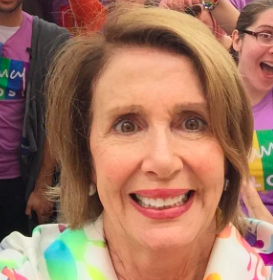Nancy Pelosi, a prominent and influential figure in American politics, has had a long and distinguished career. However, as discussions about her potential re-election in 2024 emerge, it is essential to objectively examine the factors that could influence her decision, including health concerns, age, and the importance of fresh leadership within the Democratic Party.
One of the primary concerns surrounding Pelosi’s potential re-election is her age. Born on March 26, 1940, she will be 84 years old in 2024. While age itself is not a definitive indicator of a person’s ability to serve effectively, the role of Speaker of the House demands a high level of energy, agility, and adaptability. Critics argue that advancing age might affect Pelosi’s capacity to meet the dynamic challenges of modern American politics adequately.
Additionally, Pelosi’s husband, Paul Pelosi, has faced health issues in recent years. Her dedication to her family and caregiving responsibilities are commendable, but they can pose a significant burden when combined with the demands of a high-profile political career. Concerns about her ability to fully focus on her responsibilities as Speaker of the House while tending to her husband’s health are valid.
Advocates for generational change argue that political office should not be confined to long-serving incumbents. Instead, they emphasize the importance of fostering a diverse range of voices, including younger leaders who can bring fresh perspectives and innovative solutions to the forefront. They contend that this approach is vital to maintaining the Democratic Party’s relevance and adaptability.
Pelosi’s potential retirement should be viewed within the context of the lessons learned from the late Justice Ruth Bader Ginsburg (RBG). Despite facing health challenges, RBG chose not to retire during the Obama administration, and her passing in 2020 had profound consequences. The Democratic Party should consider the importance of timely transitions of power to ensure continuity and effective leadership.
While the discussion surrounding Pelosi’s potential retirement is ongoing, it is critical to highlight the importance of an orderly succession plan within the Democratic Party. Identifying and nurturing emerging leaders who can step into key roles is essential for maintaining the party’s strength and effectiveness.
Nancy Pelosi says she'll seek House reelection in 2024, dismissing talk of retirement at age 83 https://t.co/JC5oaDsXRh pic.twitter.com/ECWwH58gin
— CTV News (@CTVNews) September 8, 2023





